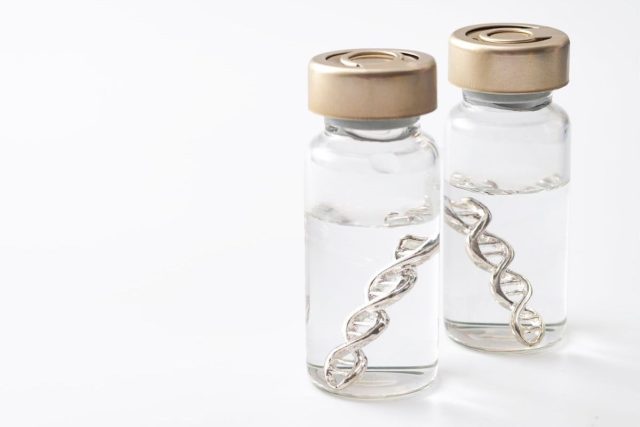Adeno-associated virus gene-therapy vector for hemophilia B superior for reducing annualized bleeding rate
By Elana Gotkine HealthDay Reporter
THURSDAY, Sept. 26, 2024 (HealthDay News) — For patients with hemophilia B, fidanacogene elaparvovec, an adeno-associated virus (AAV) gene-therapy vector for hemophilia B containing a high-activity human factor IX variant, is superior to prophylaxis, according to a study published in the Sept. 26 issue of the New England Journal of Medicine.
Adam Cuker, M.D., from the University of Pennsylvania Perelman School of Medicine in Philadelphia, and colleagues conducted a phase 3 open-label study of fidanacogene elaparvovec at a dose of 5×1011 vector genome copies/kg of body weight in men aged 18 to 65 years with hemophilia B and a factor IX level of 2 percent or less; all men had received at least six months of therapy with prophylactic factor IX concentrate. Overall, 316 men underwent screening for the lead-in study; 204 were not eligible.
The researchers found that 44 of the 45 participants who received fidanacogene elaparvovec completed at least 15 months of follow-up. There was a 71 percent decrease observed in the annualized rate of bleeding for all bleeding episodes, from 4.42 at baseline to 1.28 after gene therapy. This result demonstrated the noninferiority and superiority of fidanacogene elaparvovec to prophylaxis. Based on a one-stage SynthASil assay, the mean factor IX activity was 26.9 percent at 15 months. Overall, 62 percent of participants received glucocorticoids for increased aminotransferase levels or decreased factor IX levels, with initiation between 11 and 123 days.
“The findings of this phase 3 study showed that fidanacogene elaparvovec had a favorable benefit-risk profile providing efficacy at one of the lowest doses of AAV-based gene therapy studied for hemophilia B,” the authors write.
The study was funded by Pfizer, the manufacturer of fidanacogene elaparvovec.
Copyright © 2024 HealthDay. All rights reserved.



















